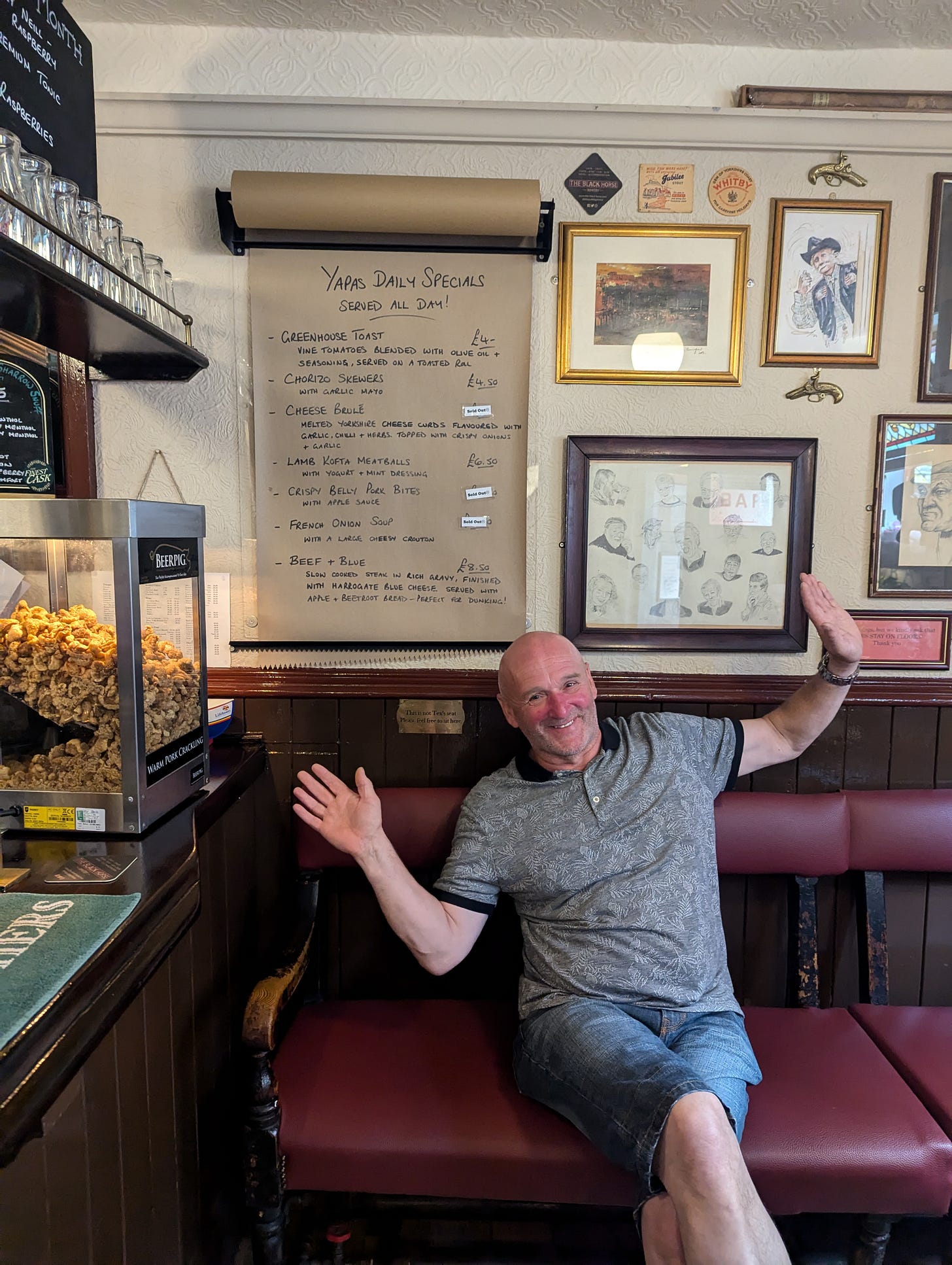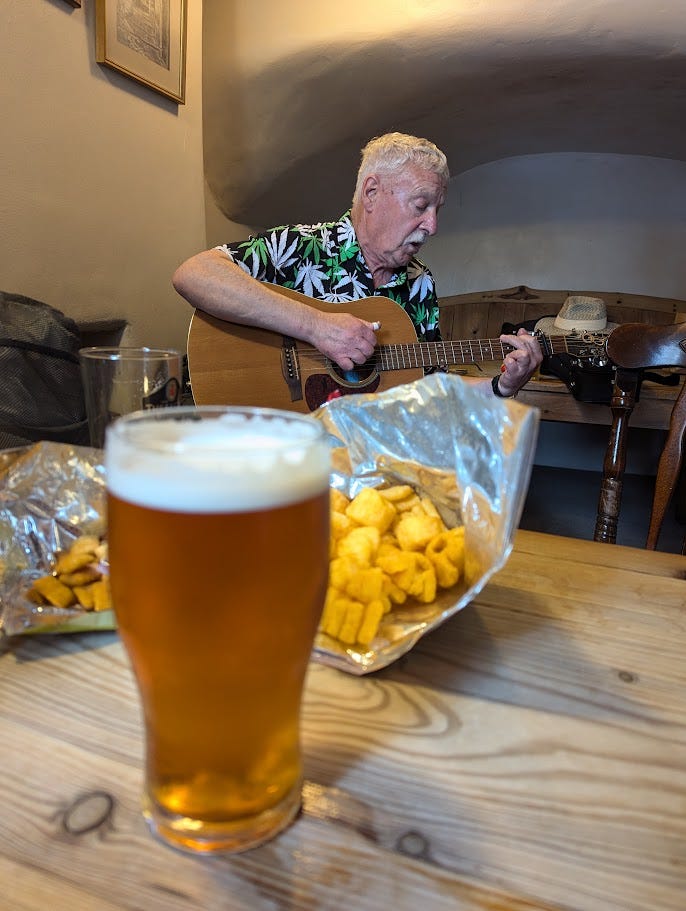A few weeks ago I read something that wound me up so much, I’m still thinking about it. A travel influencer from the US visited Scarborough, and they did not like what they found.
“I thought it would be a real hidden gem,” they said. It turned out to just be Scarborough, a northern seaside town with pretty bits and rough bits and penny machines, just like everywhere else. It wasn’t that nobody had thought of going there, it’s that they already knew it wasn’t going to offer them Salcombe-level yachts or Cornwall-level surfing. In the end they left disappointed, which is a huge shame, because I lived in Scarborough for a year when I was 18/19, and I loved it. I’m taking Tom there soon, because he doesn’t believe me about how gorgeous the beaches are.
Hidden gems make it sound like places are only worth visiting if nobody else knows about them. It promotes the idea that exclusivity is a priority, and that other people only sully the experience. I don’t agree.
I can understand where this idea began—everybody hates a tourist. There are more tourists than ever now, and we want to stay away from them1. In a recent piece, Emiko Davies wrote about overtourism in Florence, and how it’s affecting local customs and culture. We can perhaps all agree that overtourism is a blight—it brings money, but it also brings destruction that this money, eventually, will have to pay for. How has it become such a problem? Emiko thinks it has quite a lot to do with influencers and TV shows offering magical visions of a destination that others can’t wait to emulate with their own trips. But there’s a difference between local authenticity and staged seclusion. So many of these so-called “hidden gems” are just facias. The best places are always busy. If you want to be by yourself, get take-out and go sit in the park or on the beach. Dangle your feet off the pavement in the Cannaregio and drink Prosecco from a water bottle filled up a bodega like everyone else. Make your own experiences, and stop expecting the confected versions of tourist destinations influence where and how you enjoy your time. You’ll have fewer blisters and even fewer arguments this way, I promise.
In Whitby, there are more tourists than I’ve seen in a long time. The streets were heaving with window shoppers, and every inch of the railings along the harbour was taken up by kids with strings and bits of bacon, fishing in the water below for crabs. It’s a holiday town, this is what it does.
On Church Street is one of Whitby’s oldest pubs, The Black Horse. Every day, thousands of people pass by on its busy cobbled road; there is no way you could call it a hidden gem. Inside, it is full of people. You find a seat, you get a pint, and eventually you get chatting. This is what I love about pubs. (I’m going to write more about The Black Horse later this week, don’t worry.) In Robin Hood’s Bay, the pubs are packed with holidaymakers having tea, and queuing at the bar for seaside drinks. We were lucky enough to step in on a night where a local musician was playing guitar to anyone and nobody, and we sat with him and whoever came into the room for the rest of the evening. These were not secret, tucked-away pubs nobody except clever old you knows about. The Laurel in Robin Hood’s Bay is literally the most photographed pub in the town. The Black Horse has 1,102 Google reviews, and it’s in the CAMRA Good Beer Guide. What made them great was the people we met while we were there, from the Landlady, to the man with his British Steel t-shirt on. If I’d have been looking for lesser-known pubs, I would have missed both of these off. But what for? In search of perfection? Surely this was it?
I’m being facetious, of course if you have gone somewhere to visit and travel, you too are a tourist.







Makes me think of Goathland by Trembling Bells - a lovely song about drinking pints in Robin Hood’s Bay. 😊